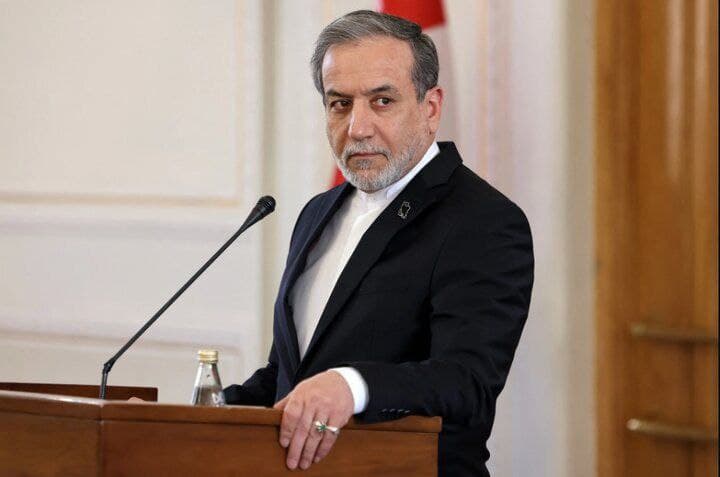Iran and Pakistan Forge Strategic Alliance to Combat Terrorism Together
In a significant diplomatic development, Iranian Foreign Minister Abbas Araghchi has emphasized the critical need for enhanced coordination between Iran and Pakistan in the fight against terrorism. This statement, made during a recent press conference, underscores a growing strategic consensus between the two neighboring countries, which have a shared interest in regional stability and security.
Background & Context
The relationship between Iran and Pakistan has historically been complex, influenced by geopolitical shifts, sectarian tensions, and mutual concerns over border security. Both nations share a long border that has been a hotspot for militant activity, particularly from groups seeking to exploit the porous boundaries. As terrorism continues to pose a threat to their respective national securities, the call for cooperation has become increasingly urgent.
Recent conflicts in the region, including the ongoing instability in Afghanistan and the rise of extremist groups, have prompted both governments to reassess their security strategies. The Iranian leadership has consistently highlighted the need for a united front against terrorism, framing it as essential not just for national security but also for the broader stability of the South Asian region.
Key Developments
During his remarks, Araghchi stated unequivocally, "Coordination in the fight against terrorism between Iran and Pakistan is an absolute necessity." This assertion reflects a deepening of bilateral ties, as both countries recognize that collaboration is crucial in addressing the multifaceted nature of terrorism that threatens their borders.
The Iranian Foreign Minister’s comments come on the heels of several high-level meetings between Iranian and Pakistani officials, where issues such as border security, intelligence sharing, and joint counter-terrorism operations were discussed. This strategic dialogue indicates a willingness from both parties to unify their efforts against common adversaries, particularly groups that have exploited regional instability to launch attacks.
Broader Impact
The implications of this emerging alliance extend beyond the immediate security concerns of Iran and Pakistan. Analysts suggest that a strengthened partnership could serve as a counterbalance to the influence of other regional powers, particularly India and the United States, which have been active in the area. By presenting a united front, Iran and Pakistan could potentially reshape the dynamics of power in South Asia.
Experts have noted that this cooperation might also have ramifications for the broader fight against terrorism. As previously reported, similar situations in other regions have led to enhanced security measures and collaborative frameworks, which can serve as models for Iran and Pakistan. The recent developments in the Middle East, including the ongoing tensions related to Gaza, further underline the interconnectedness of global security issues, as seen in the related coverage of protests and regional instability.
What"s Next
Looking ahead, the Iranian and Pakistani governments are expected to formalize their commitments through a series of agreements focused on counter-terrorism efforts. These agreements may include intelligence-sharing protocols and joint military exercises aimed at enhancing border security. Additionally, both countries may seek to engage with international partners to secure funding and support for their initiatives.
As the geopolitical landscape continues to evolve, observers will be closely monitoring how this partnership develops and its potential impact on regional politics. The situation remains fluid, with ongoing discussions likely to influence not only Iranian and Pakistani relations but also the broader security dynamics in South Asia and beyond. The commitment to combat terrorism together could mark a pivotal shift in how these nations navigate their complex histories and shared challenges.


![[Video] Heavy clashes and gunfire reported in Baghdad, Iraq](/_next/image?url=%2Fapi%2Fimage%2Fthumbnails%2Fthumbnail-1768342239932-848qsh-thumbnail.jpg&w=3840&q=75)




![[Video] Gunfire between Iraqi security forces and Sadr militias in Baghdad](/_next/image?url=%2Fapi%2Fimage%2Fthumbnails%2Fthumbnail-1768343508874-4redb-thumbnail.jpg&w=3840&q=75)
